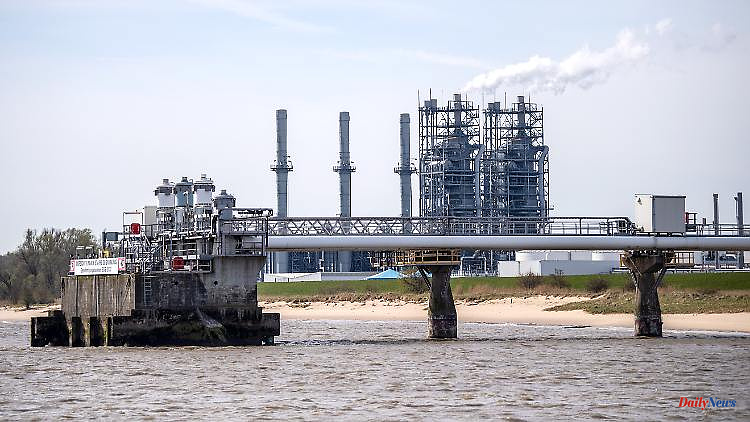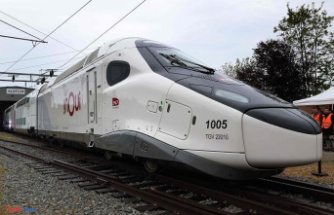The federal government is pushing ahead with the construction of liquid gas terminals on the German coast - they should replace the pipeline gas from Russia as quickly as possible. In addition to the floating terminals in Brunsbüttel and Wilhelmshaven, two other locations have been set.
The federal government has decided on further locations for floating LNG terminals. The third terminal goes to Stade near Hamburg and the fourth to Lubmin in Western Pomerania, as the Federal Ministry of Economics announced. Additional imports of liquefied natural gas (LNG) play an important role in making Germany less dependent on Russian gas.
Two ships are already available this year and are to be used at the turn of the year in Wilhelmshaven on the North Sea and Brunsbüttel on the mouth of the Elbe, the ministry said. The other two ships will be available from May 2023. The Stade location is expected to be available from the end of 2023. According to the operator, the facility at sea off Lubmin will not be available until the end of 2023 at the earliest. A private consortium will also build a fifth floating terminal in Lubmin by the end of 2022.
"We have to set up a new infrastructure as quickly as possible in order to be able to replace Russian gas as quickly as possible," said Federal Economics Minister Robert Habeck. "It is therefore very good news that, in addition to the four federal ships, there is now a fifth private regasification ship. This allows us to increase the amount that can be landed again and thus improve the supply situation."
LNG is refrigerated under pressure, transported in liquid form by ship, landed, heated, regasified and then pumped into the grids. The traffic light coalition had passed a law to speed up the process of building the LNG infrastructure. "Now it depends on the implementation on site," said Habeck. "And it's clear that everyone is committed to making things happen as quickly as possible. It's clear that it's not easy. There are many things to be done at the same time and hurdles to be overcome. Ultimately, we have to set a pace that makes it so not yet existed in Germany."
Lower Saxony's Environment Minister Olaf Lies had already expected the decision on Stade, but asked the federal government to speed things up. Now he spoke of a "good and right decision" in Berlin. The first floating terminal in Germany is to be built in Wilhelmshaven. On July 1, the energy company Uniper received approval for the construction work, which has now started. According to the company, it took just under a month to apply for the relevant project phase - significantly less than is usual for such projects. "We will now also start in Stade with this claim," said Lies about the schedule. "The aim is to have taken all the necessary precautions by late summer 2023."
Further financing talks with the federal government are planned. "Everything is actually clear in Stade, we could order material tomorrow," the energy minister said recently. In Wilhelmshaven, Lower Saxony is aiming to start operations on December 21st. Lies is also promoting another LNG terminal in the city on the Jade Bay.
The floating facilities are to be used until there are permanent terminals on land. In addition to landing at the German locations, supply via the LNG terminals in Rotterdam, Zeebrugge in Belgium and Dunkirk in France will also be added if demand is high, the Ministry of Economic Affairs announced. This will bring additional capacity to the German market.












